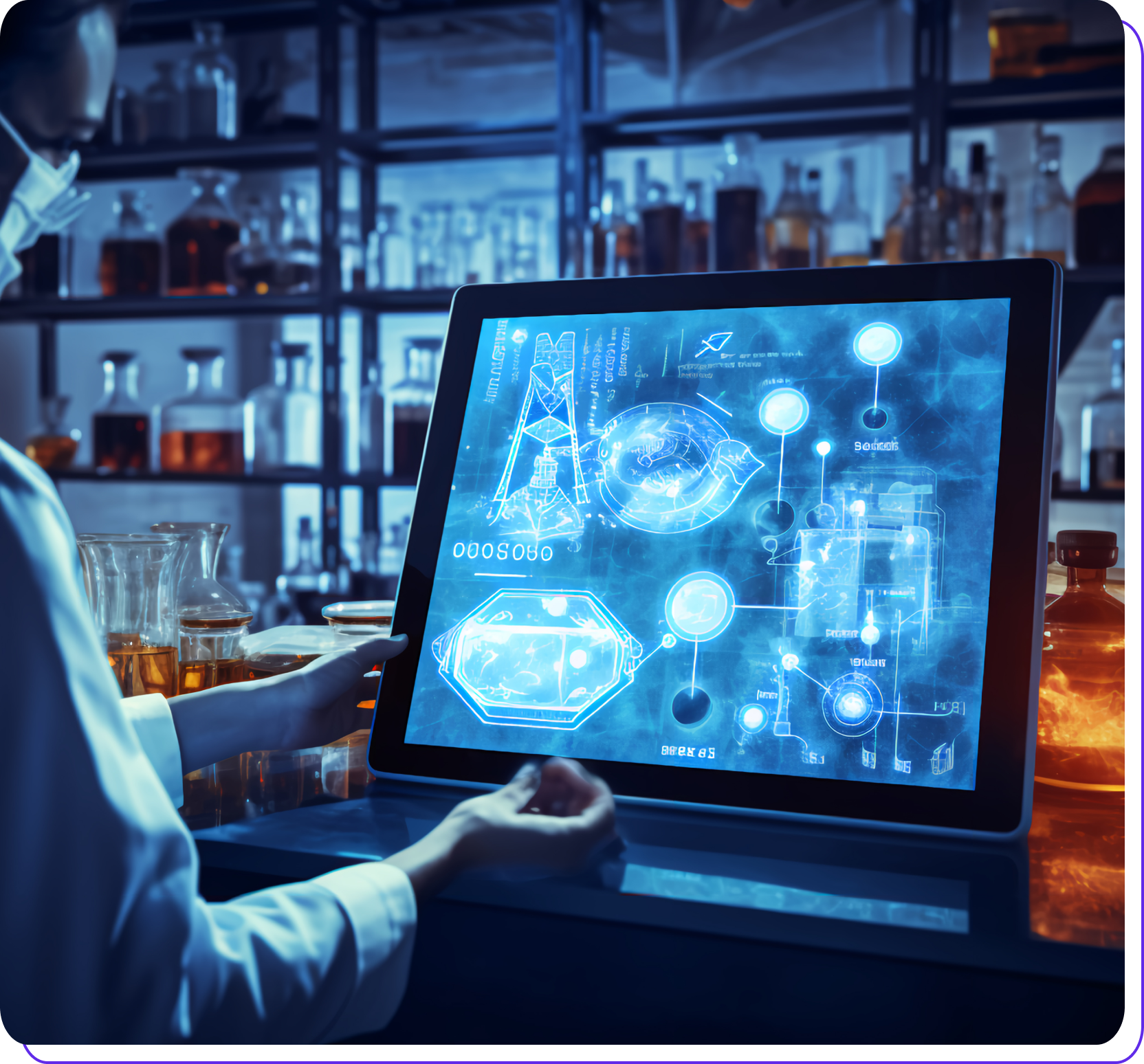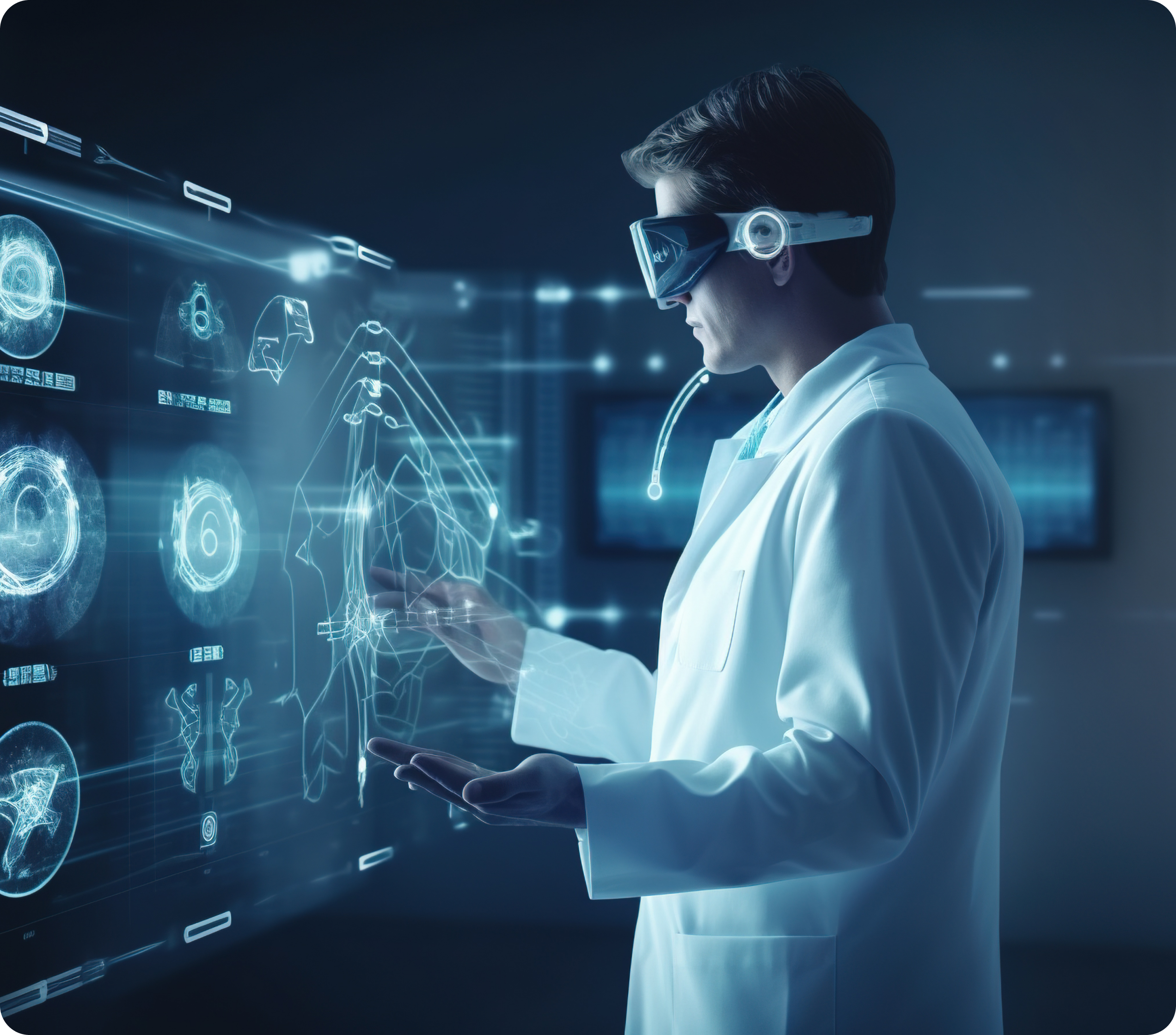Healthcare and Medicine
Artificial Intelligence in Healthcare & Medicine Industry
The healthcare industry is currently experiencing a significant shift, primarily driven by the rapidly advancing world of artificial intelligence (AI). No longer confined to science fiction, AI solutions are finding their way into hospitals, clinics, and research labs, promising to revolutionize the way we diagnose, treat, and prevent diseases. With the potential of AI in healthcare becoming increasingly apparent, a growing number of companies are emerging to offer AI-powered solutions.
Applications of AI in Healthcare
Challenges of AI in Healthcare

The Future of AI in Healthcare

By overcoming the challenges and realizing the potential of AI,
we can create a future where healthcare is more efficient, effective, and accessible to everyone.